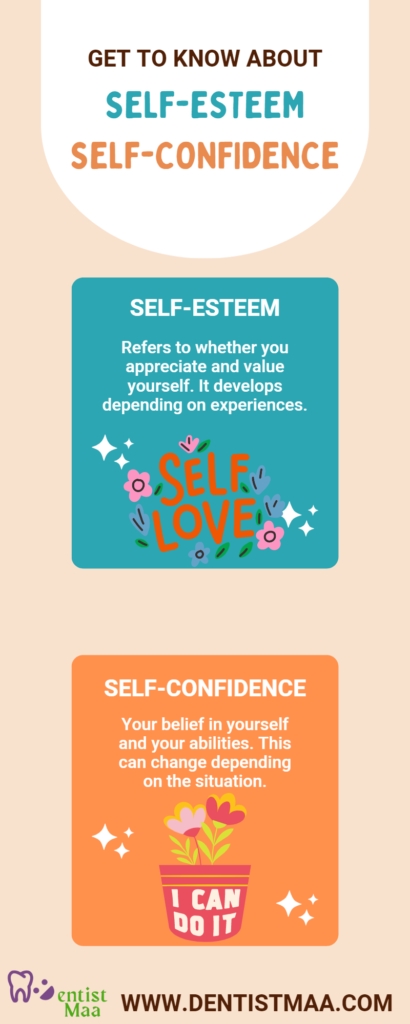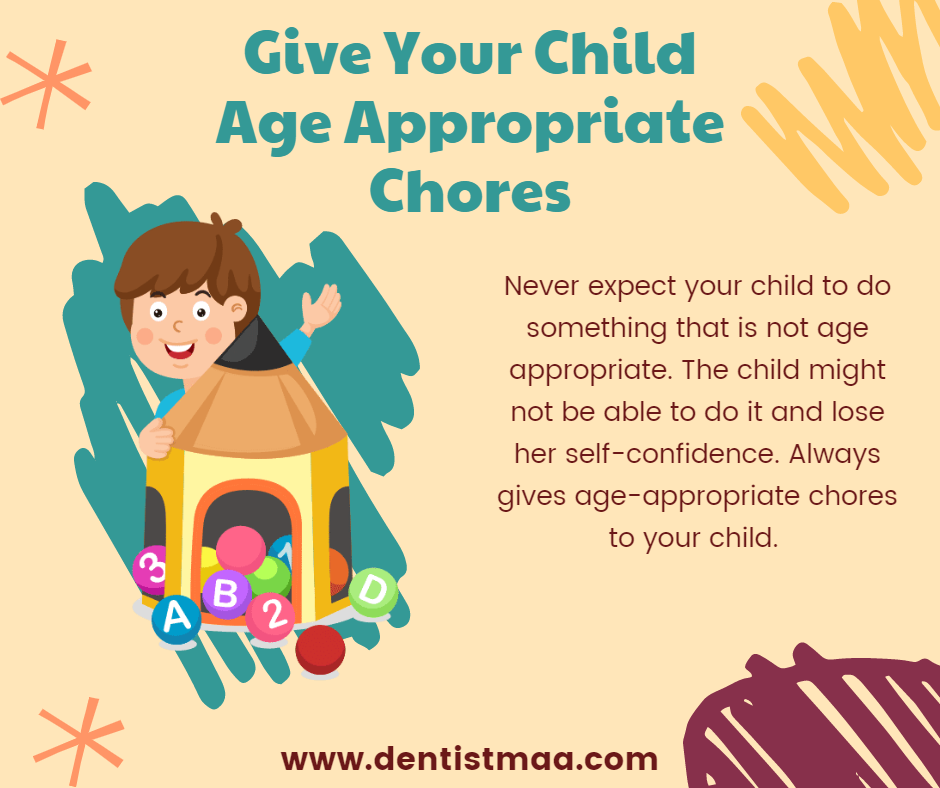Ever wondered why having self esteem is so important?
When should you start instilling self esteem in your child?
What is the age when the child has developed self esteem?
What exactly is self esteem?
These are a few very important questions you should know the answer to when you are raising a child, and you have landed at the right place. Raising a child with self esteem is important. According to a study by the University of Washington, the self esteem of the child has almost developed by the age of 5 years. Parents play a very important role in building this self esteem in a child, as the child is mostly with parents for this time of life. the study also emphasized on the first five years as a foundation for life.
Key Points
What is Self Esteem?
Self esteem is defined as, “confidence in one’s worth or abilities.” It is your self-respect. The way we respect others, is the same way we should respect ourselves. It is nothing but how we see ourselves, our abilities, and our trust on our own self.
Positive self esteem makes you feel and understand that you are important too. So, a child should always be brought up with positive self esteem. If the child has positive self esteem the child will try more activities and if the child fails the child will understand that it is okay, and will not give up. The child will be proud of himself or herself when they accomplish something.
If the child has negative self esteem, the child will find it very difficult to do something again that he or she has failed at.
Is Self Esteem and Self Confidence the same?
Self esteem is that you know you are important and worth it. E.g. it doesn’t matter what other people talk about you. You know what you are, and it doesn’t affect you. This means you have good self esteem.
Self-confidence is when you know you can do it and you have confidence in yourself. E.g. you do not lose faith when you fail or try something new. You have confidence in yourself that you can do it. This means you are a confident person.

What are the ways to build your child’s Self Esteem?
1. Love your child unconditionally
This is the first and the most important way of instilling self esteem in your child. A child who is loved unconditionally will have a good self esteem. The child will know that he or she is worth it. No matter they win or loose, they should know that they will be loved anyways. It boosts a child’s confidence even more.
Related: 10 Simple Ways to Raise a Good Reader
2. Spend quality time with them
The more time you will spend with the child, the more the child will feel that he or she is worth it. They will feel that they are a good company to spend time with. Other than that, your bond with your child will strengthen and the child will feel more loved, be happier, and participate more in school. The anxiety will reduce, and the child will be more comfortable and confident.

3. Praise your child appropriately
Praising your child is good, but over-praising is definitely not good. It does more harm to the child than good. Praise the child appropriately. E.g, if the child won a competition, congratulate the child for that. But never say that the child is born to win, or that he or she is always the best. Tell the child that the hard work paid, the hours the child had put in brought a good result. Tell the child he or she should continue the same in the future if they want to win again.
Praising in the form of giving them stars or giving them small souvenirs as a memory for the won is a great booster of self esteem and confidence. Whenever the child will look at it, the child will be confident about doing it once again. You can make a victory board in your child’s room and paste or pin the child’s pictures of every win. It will be a great way to help the child with his or self esteem and confidence. The child will work hard for the next win for a picture on the victory board.

4. Give them age appropriate chores
My child is very young to do household chores, why should I make him or her do them?
This is a very commonly heard thing in most of the house holds. But is it true? NO!!
When you make a child do age-appropriate chores at home, their self esteem increases. They think they are capable of helping you at home. They feel they are a part of the house and they exist. They might not be able to do it perfectly but still appreciate their effort. Tell them they tried very well and helped you at home. A child who helps parents with household chores will always have good self esteem, and they will turn out to be responsible people.

5. Do not stress too much on winning always
Winning is not important, and if your child thinks it is, then you need to make your child understand that it is not. Winning is good, but the criterion for everything in life. Trying and working hard is what is important. A child who always wants to win will have a very low self esteem and will most of the times not participate in events or competitions from the fear of loosing. It is not healthy and should be dealt with.
6. Let them take their own decisions (age appropriate)
Why do most of us hesitate when it comes to kids taking their own decision?
Why are we worried when our teenager is going to take some major decision for his or her life?
It is because since they are toddlers they were not allowed to take their own decision. Yes! toddlers can take age-appropriate decisions on their own, and it is a good thing to let them do that. It helps the child understand that the child is important and their decision values. This will help in developing positive self esteem. It shows that you trust your child for the decision he or she is going to make, and it further helps in the future.
Imagine a child who has never taken any decision in his or her life before. From the clothes to wear to the food, the child is eating everything a parent has been deciding for the child. And suddenly one day you ask the child to make an important decision. The child will struggle to do so. The child might not be able to make the right decision.
So, starting from when they are toddlers is what is important. Let them choose the clothes they want to wear, the food they want to eat, how much they want to eat, what games they want to play, and so on. Let the child decide the small things and slowly make them part of family decisions, starting from small ones, as they are growing up.
E.g. you can let your 6-year-old child decide whether he or she wants to go to the mall or an outdoor play area on a holiday. As the child grows, you can ask the child to find out a place to plan a holiday. This will make the child believe that he or she is worth it that they can decide a destination. It increases a child’s self esteem.
7. Show them that you have your own self esteem
Children do and feel what they see. If they see you have your self esteem they will have it too. Show them you trust yourself and have confidence in yourself. They will feel confident themselves. Try new stuff. When they see you doing it will give them a push to try new things themselves. It will be positivity for you too.
8. Practice positive self talk
Self-talk does wonders. When you talk to yourself you push yourself to do things. Positive self-talk is always encouraging. Ask your child to talk to themselves and say that they can do it, that they are good, and that they are not scared of anything.
Once my 4-year-old was going up a big slide, and was a little afraid to come down as it was a closed tube (she doesn’t like closed spaces), but what I heard her saying took me by surprise, “I can do it, I can do it, I can do it.” she was chanting all the way down. And she did it. And now she is so comfortable on the slide that she can go any number of times without hesitating a bit.
So, self-talk is a good way to increase self esteem for kids, as well as adults.

9. Encourage persistence
Persistence is when you do not give up, no matter how difficult it is. If your child is trying hard for something though the child is not winning, always encourage the child. Winning should never be the ultimate goal. Trying to win is what is required. A child who doesn’t play because of the fear of loosing is will never have a positive self esteem. Boost the child to keep trying even when the child doesn’t win.
10. Let them take risks
Letting them take risks that will not be detrimental is a good way of raising a kid with good self esteem. It helps them deciding for themselves what is right for them and what is wrong. Praise them once they have achieved their goal. Do not interfere, just be around.
My 4-year-old is quite flexible so when we go on the swings she likes hanging from one place to another. I have heard many parents of kids the same age ask their children to not do it as they are too small for it. What happens is when the child sees a similar-age child doing the same, he or she loses confidence. So, let them do what they want to do. Let them make their own choices, just be around them when your intuition says you should be. Do not stop them. Let them try. Let them get their self esteem and their self confidence.
11. Set age appropriate goals
Setting up age-appropriate goals is the key to boosting self-confidence and therefore self esteem. If you ask a child to do something which is not age-appropriate, the child will lose confidence and never trust himself or herself. They will think they are not good at it and will not be able to do anything. The child should be given a task according to age, e.g. ask your toddler to pick up the toys and put them back into the box. The child will be able to do it, will be happy, proud of himself or herself, and feel good about it. Praise the child and say that you did well.
12. Help them find their passion and interests
Never force the child to pursue something the child is not interested in. E.g. your child is not interested in badminton, but you want him or her to play, and you start to get your child enrolled in a class to learn badminton. But because the child is not interested, the child might not perform well, and because the child is not performing well the child might lose his self esteem. So, just because you want your child to do something, never force your child to do it.
Let the child choose their hobbies and interests, and help them finish it or work hard for it. It will help the child to gain more self esteem once the task is finished or the child is performing well in the activity the child was enrolled in.
13. Celebrate success
Yes it is very important to celebrate success, the child will feel appreciated. Praising the efforts and the hard work is more important than praising that the child’s won. Tell the child that he or she won because of the efforts the child has put in.
When you know the child has been working hard for something and the child succeeded take the child out for what he or she likes. A simple ice cream will do. It is just about appreciation. You can also make a “Wall of Fame” at home. Let the wall have all the certificates, artwork, success stories, trophies, medals, etc. The child will feel more confident and appreciated when he or she sees the wall. This helps in developing a high self esteem.
14. Embrace failure
There is nothing wrong with failing. If your child doesn’t succeed and fails and does something do not embrace the child. Tell the child that the next time you will help the child do better. There is nothing wrong with not winning. When we constantly nag the child about winning a competition, coming first in the class, winning a game, etc. then you have to help the child do that. Just telling the child that they are not doing enough is not the solution. Parents need to put 100% effort to help their child succeed.
If the child has a fear of failure, the child will hesitate in participating again thing that he or she might lose. So, as a parent, it is our duty that the child embraces failure without any hesitation, and tries harder the next time.
15. Do not compare them to others
Do you feel bad when someone compares you to another person?? I do! Comparison is not a good thing to do as it might lead to losing confidence and self esteem. The comparison shows that you feel the child is not good enough. So, always avoid comparing your child to another child. Instead, compare the child to the child’s previous self. Tell the child he or she did better than the last time and can improve more the next time. That will slowly increase the child’s self confidence.
Take Away Message
A child with positive self esteem can have a confident and as well as successful life. It is parents duty to give their 100% to raise a child with good self esteem and self confidence. The child should never feel neglected, unloved or like a failure. Always make sure your child is doing mentally and physically well. To live a happy life the child need to trust in his or her own abilities and capabilities. To nurture these capabilities parents, teachers, guardians, friends all play a very important role.
So, let your child believe in themself by showing that you believe in them.
Related: Parenting Books Every Parent Should Read
Frequently Asked Questions
What are some tips on boosting self esteem?
1. Always trust yourself
2. Love yourself unconditionally
3. Try new things
4. Start with simple goals
5. Do not wait for others to praise you
6. Embrace failure
7. Work hard
8. Do not compare yourself to others
9. Take risks
10. Practice Self Talk
How do I deal with low self esteem?
Look in the mirror and talk to yourself.
Tell yourself that you can do it.
Tell yourself that you are good enough.
Start taking one step at a time.
Read good books.
Start taking risks.
Make sure what others say does not affect you.
Take your own decisions.
Make your own choices.
What are the positive signs of self esteem?
1. Self Confidence
2. Self Love
3. Success
4. Trusting yourself
5. Hard work
6. Persistence
7. Embracing failure
8. Not comparing yourself to others
9. Taking risks
10. Taking your own decisions






Pingback: 10 Wonderful Benefits of Taking Your Child To a Picnic - DentistMaa
Very beautiful explanation